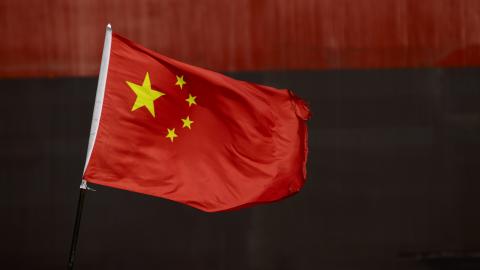In 2014, President Xi Jinping reached back into Chinese Communist Party folklore to reintroduce Mao Zedong’s concept of “magic weapons” that could be used to achieve the great rejuvenation of the country and achieve his “China Dream.” Xi was referring to the co-optation tactics of the CCP’s United Front network to win friends, influence governments and eliminate dissent inside China and in other countries.
In recent years the CCP has developed and deployed another so-called “magic weapon” to complement its accumulation of material power. This is the success Beijing is having in shaping grand narratives in the region regarding the United States and China. The power of narratives is that they condition weaker states to tolerate Chinese policies even if these seem to be against their national interests. The U.S. is losing badly in this contest. But clear dysfunction in the way China is governed and evidence of an ever more brittle Chinese economy is creating opportunities for the U.S. to reverse Chinese gains and craft some new narratives to reassure an anxious region.
Chinese narratives are buttressed by five basic messages: Chinese dominance is the historical norm and is inevitable; the objectives of the CCP are permanent and unchanging; a CCP-led China is fundamentally undeterrable; the party is prepared to pay any price to achieve its core objectives; and the U.S. is an increasingly weak and unreliable ally.
If states accept these propositions, the motivation for them to resist or counter even the most coercive policies is greatly diminished, even if they profoundly disagree with China’s behavior. Striking an uneven bargain becomes seemingly preferable to foolishly balancing against the future inevitable dominant power.
Indeed, the message from Beijing to nervous American allies is that they would do better to make the best of this imminent Sino-dominated future rather than resist its arrival. To the extent that any cold hand of friendship is offered, Asian states ought to pocket the guaranteed largesse that comes from submissively accepting Beijing’s conditions or risk ending up with nothing. The benefit of the narrative for Beijing is that once one accepts the five basic messages as a given, then the only reasonable action is to compromise and avoid the instability that comes from resisting China.
These narratives have played out beautifully for Beijing in the South China Sea and in the Taiwan Straits where the U.S. is often cast as the provocateur — even though it is China that is the aggressor seeking to alter the status quo. Similarly, the reason why more than 150 countries have signed agreements to take part in China’s Belt and Road Initiative is that there seems no point rejecting the largesse that comes from submitting to the Chinese blueprint to dominate supply chains, technology, and markets in a constructed economic region which spans Eurasia and the entire Indo-Pacific (but excluding the U.S.). It matters little that China is upfront that it will pocket the lion’s share of benefits of any agreement. The point made by Beijing is that the U.S. is a declining power and China is the future.
However, one senses the tide is turning if the U.S. can recognize and seize the moment.
The credibility of the Chinese grand narratives is dependent on the argument that China’s authoritarian system is superior to democratic alternatives — Xi’s strategic wisdom and mastery compared to democratically elected leaders interested only in short-term successes to achieve re-election — and on the continuation of Chinese material success relative to the U.S. economy.
All these Chinese pillars are crumbling.
Perhaps not as bad as — but with similarities to — Russia, the Chinese authoritarian system seems increasingly inflexible and incapable of self-correction. The ruthlessness of Xi’s austere and extended lock-down policies during the pandemic and stubborn refusal to purchase superior Western vaccines was matched only by the absurdity and the unnecessary damage done to the Chinese economy and society. Xi’s aggression and eagerness to overtly coerce open societies and interfere in their domestic institutions have alienated liberal democracies around the world. NATO in Europe and U.S. allies in Asia are now referring to a common Chinese authoritarian challenge and threat. This overturns the decades’ old Chinese strategic objective of divide and conquer through preventing the advanced democracies from banding together against China. Xi owns this failure.
The troubles in China’s property sector and the worsening problems associated with a highly leveraged state-led political economy means a gradual Japan-like slowdown over the next few decades might well be the best-case scenario for China.
In contrast, and despite the political divisiveness and rancor on display to the world, the fundamentals of American power — economic, demographic, the creativity and efficiency of its private sector, and measures (albeit gradual) to upgrade and transform its military — is suggesting to the region that both Chinese dominance and American decline might well be overstated.
None of this is to suggest that China is a spent force or that its carefully crafted narratives will suddenly lose standing. All assessments are relative, and the region is looking to see whether the U.S. is declining in relevance and standing as China is alleging, even as the latter’s problems become more serious.
This means the AUKUS agreement with Australia and the United Kingdom needs to lead to perceptible shifts in the military balance of power. The project to reinvigorate the U.S. industrial base and economy needs to achieve not just an increase in American economic power but create opportunities for allied and friendly nations in the process. American firms must not just invent but also lead the commercialization of new technologies. Change these facts on the ground, and the U.S. can credibly promote its preferred narrative that we still exist in an American rather than a Chinese century. Muddle through, and it will be a far more precarious region for the U.S. and its allies.


















